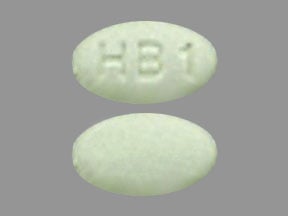
Sensipar Coupons & Savings Card – Discount Prices from $39.99
Brand for: Cinacalcet
My prescription
Edit
30MG, Cinacalcet (90 Tablets)
Select pharmacy

CVS
$40.68
COUPON PRICE
Walmart
$39.99
COUPON PRICE
Albertsons
$52.40
COUPON PRICE
Walgreens
$53.01
COUPON PRICESensipar savings card
Show this card to your pharmacist
Walmart
$39.99
BIN
ID
PCN
GRP
019876
LHD5B351F2
CHIPPO
LHX
Powered by
More prescriptions for kidney disease
More prescriptions for kidney disease
Price history for Sensipar (brand) & Cinacalcet (generic)
90 Tablets, 30MG
Average retail price for Sensipar
Average retail price for Cinacalcet
Average SaveHealth price for Cinacalcet
Our price history data is based on aggregated prescription data collected from participating pharmacies in America. Our prescription data updates daily to reflect the latest price changes. If you notice a missing data point, it means there wasn't sufficient data available to generate a monetary value for that date.
Over the last 12 months, the average discount price of Sensipar is $45.25 using the SaveHealth savings card. That's an average savings of 95.52% on Sensipar with our discount card.
*Retail prices are based on pharmacy claims data, and may not be accurate when we don't have enough claims.
Sensipar (Cinacalcet) dosage forms
Dosage Quantity Price from Per unit 30MG 90 Tablets $39.99 $0.44 30MG 1 Tablet $2.84 $2.84 30MG 20 Tablets $9.39 $0.47 30MG 30 Tablets $12.83 $0.43 30MG 500 Tablets $106.20 $0.21 60MG 30 Tablets $22.41 $0.75 60MG 90 Tablets $66.15 $0.73 60MG 500 Tablets $247.70 $0.49 90MG 30 Tablets $28.03 $0.93 90MG 90 Tablets $66.15 $0.73
| Dosage | Quantity | Price from | Per unit |
|---|---|---|---|
| 30MG | 90 Tablets | $39.99 | $0.44 |
| 30MG | 1 Tablet | $2.84 | $2.84 |
| 30MG | 20 Tablets | $9.39 | $0.47 |
| 30MG | 30 Tablets | $12.83 | $0.43 |
| 30MG | 500 Tablets | $106.20 | $0.21 |
| 60MG | 30 Tablets | $22.41 | $0.75 |
| 60MG | 90 Tablets | $66.15 | $0.73 |
| 60MG | 500 Tablets | $247.70 | $0.49 |
| 90MG | 30 Tablets | $28.03 | $0.93 |
| 90MG | 90 Tablets | $66.15 | $0.73 |
| 90MG | 500 Tablets | $247.70 | $0.49 |
What is the drug Sensipar used for?
Sensipar is used to treat secondary hyperparathyroidism in patients with chronic kidney disease on dialysis. It is also used to lower calcium levels in patients with parathyroid carcinoma and primary hyperparathyroidism when surgery is not an option.
Are Sensipar and Calcitriol the same?
Sensipar and Calcitriol are not the same. Sensipar, also known as cinacalcet, is a medication used to lower parathyroid hormone levels in patients with chronic kidney disease on dialysis. Calcitriol, on the other hand, is an active form of vitamin D used to treat and prevent low levels of calcium in the blood of patients with kidney disease or other conditions. They have different mechanisms of action and are used for different purposes.
What does Sensipar do to phosphorus?
Sensipar (cinacalcet) primarily works by lowering parathyroid hormone (PTH) levels, which can indirectly lead to a decrease in serum phosphorus levels. By reducing PTH, Sensipar helps to manage the balance of calcium and phosphorus in the body, particularly in patients with chronic kidney disease on dialysis.
Are cinacalcet and calcitriol the same?
Cinacalcet and calcitriol are not the same. Cinacalcet is a medication that lowers parathyroid hormone levels by increasing the sensitivity of calcium-sensing receptors on the parathyroid gland. Calcitriol, on the other hand, is the active form of vitamin D and helps regulate calcium and phosphate levels in the body. They are used for different purposes in managing conditions related to calcium and parathyroid hormone imbalances.
What is the warning for Sensipar?
Sensipar (cinacalcet) carries a warning for the risk of hypocalcemia, which is a condition where calcium levels in the blood become too low. This can lead to serious complications such as seizures, tetany, and cardiac arrhythmias. It is important for patients taking Sensipar to have their serum calcium levels monitored regularly and to report any symptoms of low calcium, such as muscle cramps, tingling, or numbness, to their healthcare provider.
